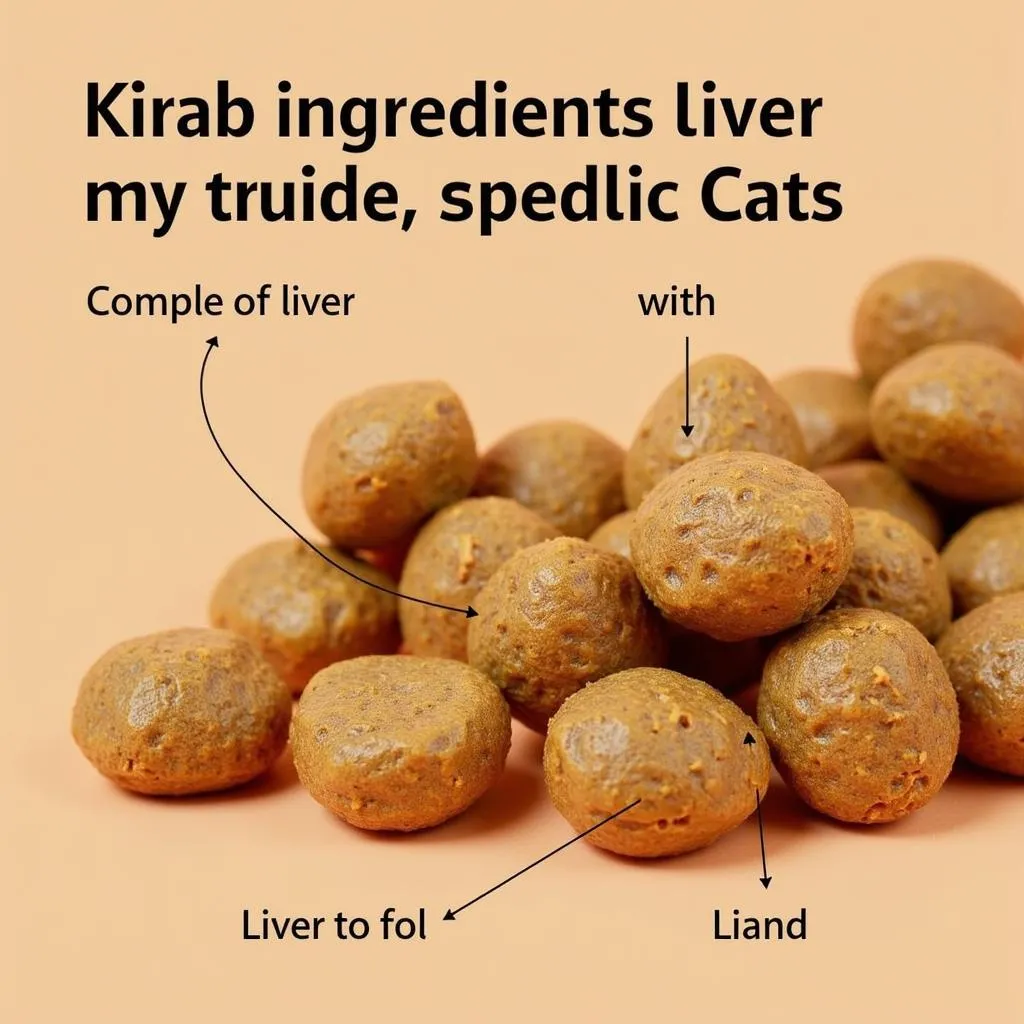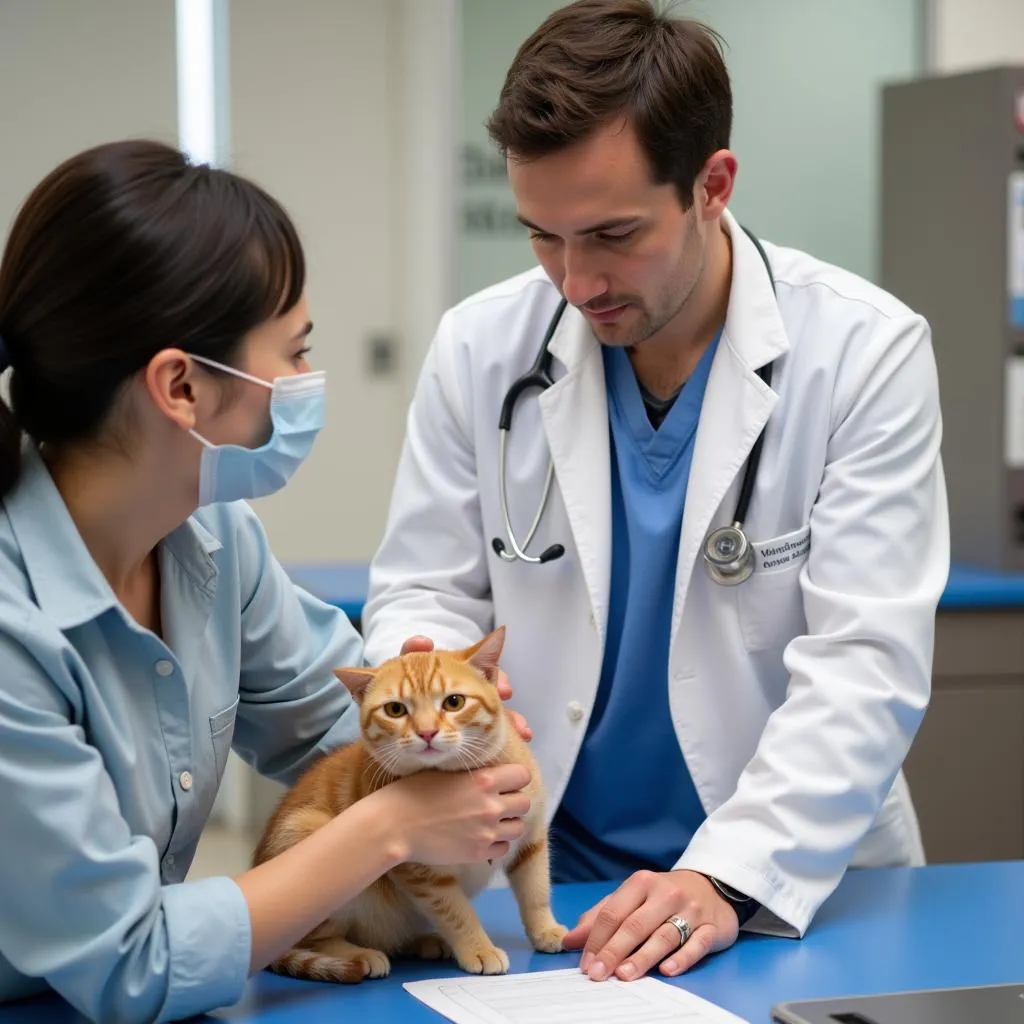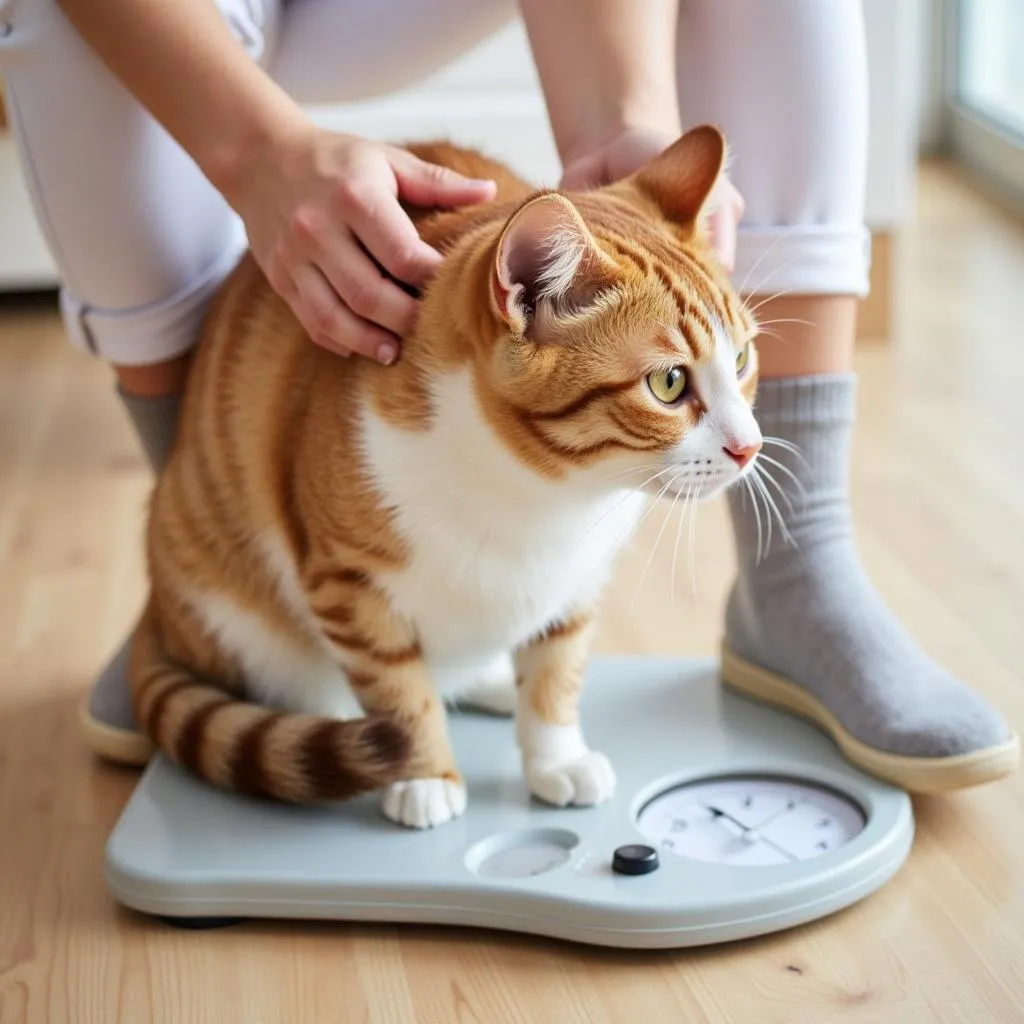Hepatic Cat Food is a specially formulated diet designed to support cats with liver disease. As a vital organ, the liver plays a crucial role in filtering toxins, digesting food, and storing essential nutrients. When the liver is compromised, a cat’s overall health can decline rapidly. This is where hepatic cat food becomes essential, providing nutritional support and aiding in the liver’s recovery.
 Close-up of hepatic cat food kibble with visible ingredients
Close-up of hepatic cat food kibble with visible ingredients
Understanding Liver Disease in Cats
Liver disease can manifest in various forms, ranging from inflammation (hepatitis) to scarring (cirrhosis) and even cancer. Common symptoms include jaundice (yellowing of the skin and eyes), loss of appetite, weight loss, vomiting, diarrhea, and increased thirst and urination. If you notice any of these symptoms in your cat, it’s crucial to seek veterinary attention immediately.
Why Hepatic Cat Food is Important
Unlike regular cat food, hepatic cat food is carefully formulated to alleviate stress on the liver and provide optimal nutrition for cats battling liver disease. Here’s why it’s so important:
- Reduced Protein and Sodium: Hepatic cat food typically contains lower levels of protein and sodium, which are easier for a compromised liver to process. This helps prevent the buildup of toxins in the bloodstream.
- Increased Digestibility: High-quality ingredients and added prebiotics and probiotics make hepatic cat food easier to digest, ensuring your cat receives the maximum amount of nutrients from their meals.
- Higher Levels of Antioxidants: Liver disease can cause oxidative stress, which damages cells. Hepatic cat food often contains increased levels of antioxidants like vitamins E and C, which help protect the liver from further damage.
Choosing the Right Hepatic Cat Food
Selecting the best hepatic cat food for your feline companion can be daunting. Here’s what to consider:
1. Consult Your Veterinarian
Your veterinarian is your best resource when choosing a hepatic diet for your cat. They will assess your cat’s individual needs based on factors like the severity of their condition, age, and overall health.
 Veterinarian carefully examining a cat diagnosed with liver disease
Veterinarian carefully examining a cat diagnosed with liver disease
2. Read the Label Carefully
- Ingredients: Look for high-quality protein sources, such as chicken, turkey, or fish, listed as the first few ingredients. Avoid artificial colors, flavors, and preservatives.
- Nutrient Profile: Check for reduced protein, sodium, and copper levels, along with increased antioxidants and easily digestible ingredients.
- AAFCO Statement: Ensure the food carries the Association of American Feed Control Officials (AAFCO) statement indicating it’s complete and balanced for the intended life stage.
3. Consider Your Cat’s Preferences
While nutritional content is paramount, your cat’s acceptance of the food is crucial for their well-being. Hepatic cat food comes in various textures, including wet food, dry kibble, and even prescription diets.
Transitioning Your Cat to Hepatic Cat Food
Abruptly switching your cat’s food can lead to digestive upset. It’s best to gradually transition them over 7-10 days, gradually increasing the proportion of the new food while decreasing the old.
Tips for Managing Your Cat’s Liver Disease
- Follow Your Veterinarian’s Instructions: Adhere to their recommendations regarding diet, medication, and follow-up appointments.
- Provide a Stress-Free Environment: Stress can exacerbate liver issues. Create a calm and comfortable environment for your cat.
- Monitor Your Cat’s Weight: Regular weigh-ins can help detect any changes that require veterinary attention.
 Cat owner carefully weighing their cat at home
Cat owner carefully weighing their cat at home
Conclusion
Hepatic cat food is an essential tool for managing liver disease in cats. By understanding your cat’s needs, choosing a high-quality food, and working closely with your veterinarian, you can provide the best possible support for your feline friend’s liver health and overall well-being. If you suspect your cat may have liver issues, don’t hesitate to contact your veterinarian for immediate attention.
Frequently Asked Questions
1. Can I give my cat with liver disease regular cat food?
No, regular cat food is not formulated for cats with liver disease and may exacerbate their condition.
2. How long will my cat need to eat hepatic cat food?
The duration depends on the severity of the liver disease. Your veterinarian will advise you on the appropriate feeding plan for your cat.
3. Are there any home remedies for cat liver disease?
While some natural supplements may support liver health, it’s crucial to consult your veterinarian before administering any home remedies.
4. Can cats with liver disease recover?
With early diagnosis, proper management, and a suitable diet, some cats with liver disease can experience significant improvement and enjoy a good quality of life.
5. Where can I buy hepatic cat food?
Hepatic cat food is available at most veterinary clinics and some pet stores. Your veterinarian can recommend the best options for your cat.
If you have any further questions or need personalized advice on hepatic cat food, don’t hesitate to contact us. Our team of experts at Mina Cones Food is available 24/7 to assist you. You can reach us at Phone Number: 02437655121, Email: minacones@gmail.com or visit us at our address: 3PGH+8R9, ĐT70A, thôn Trung, Bắc Từ Liêm, Hà Nội, Việt Nam.